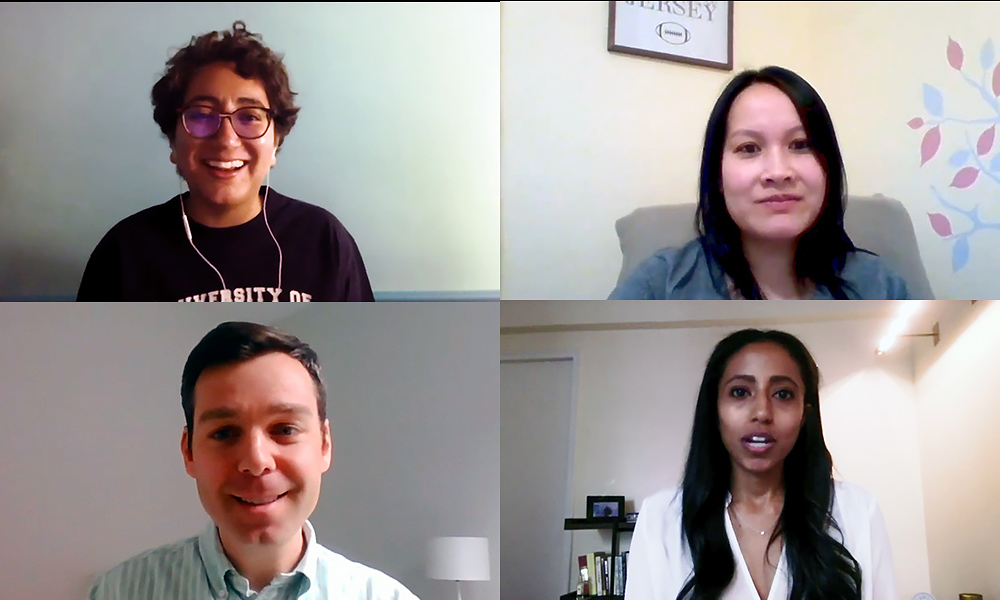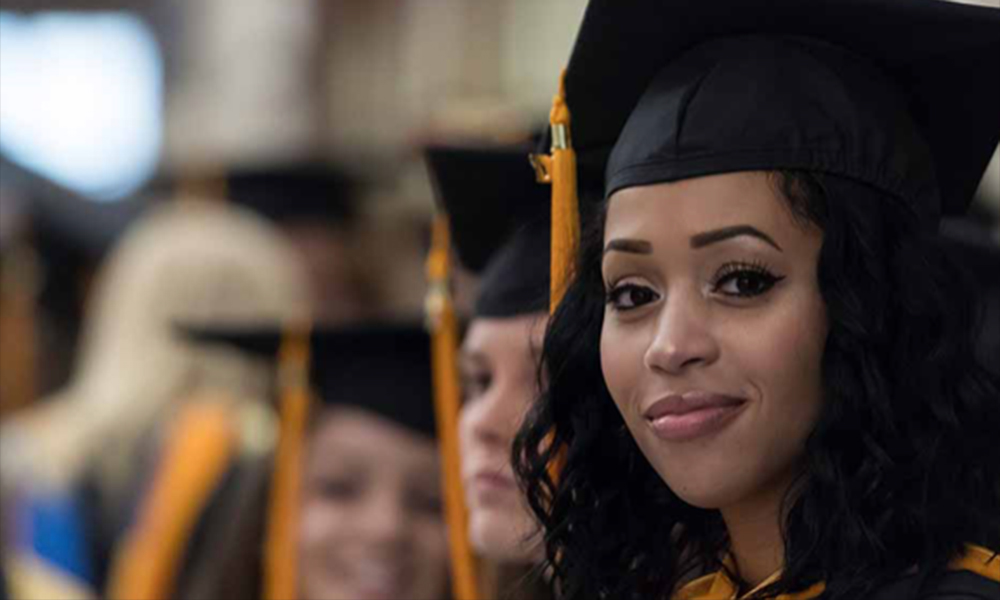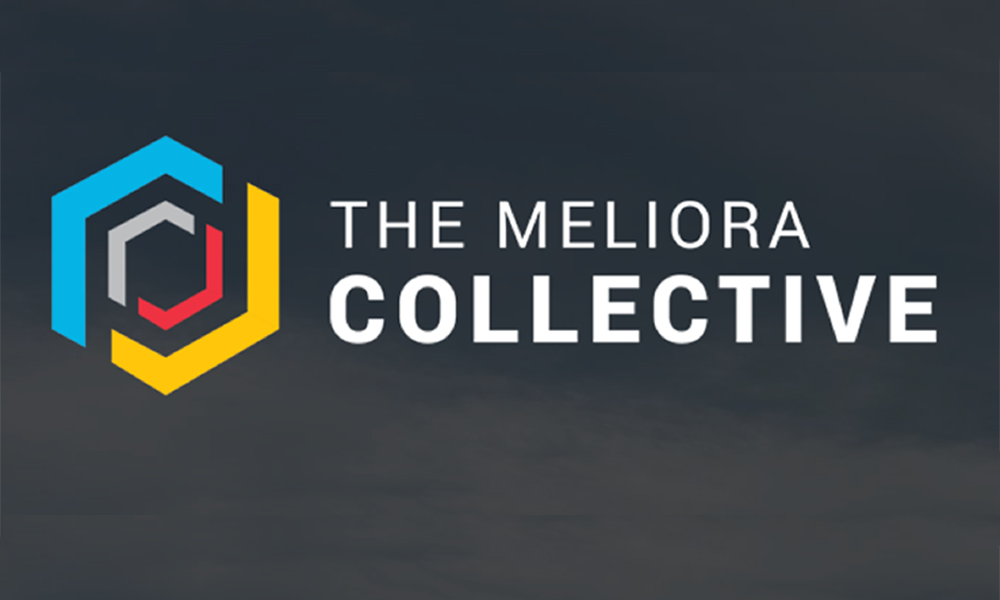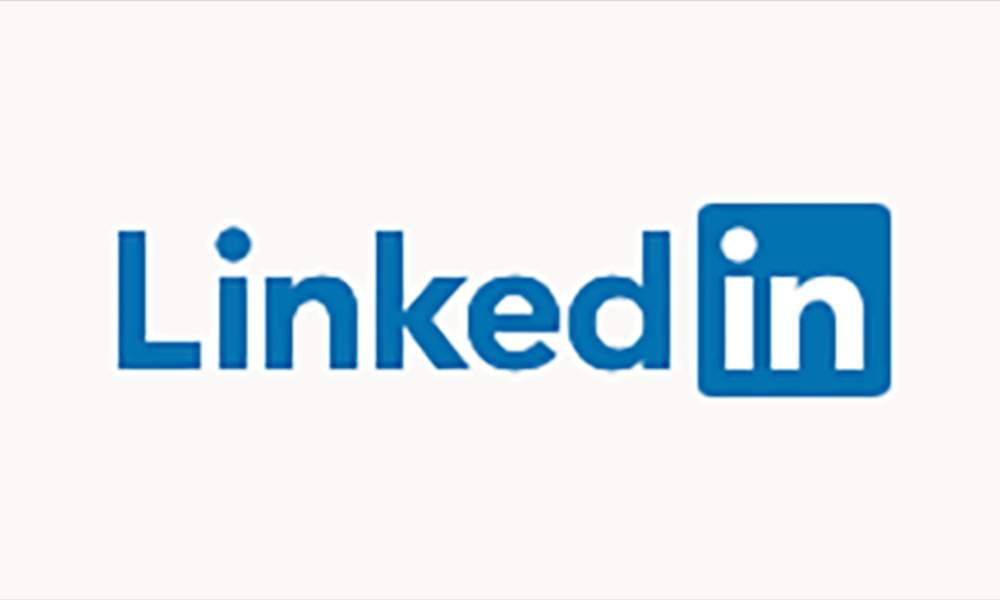With the collapse of the job market due to the COVID-19 pandemic, this year’s college graduates are faced with a great deal of uncertainty as they begin their careers.
Lisa Kahn, professor of economics, knows all about that uncertainty. In a study that’s getting a lot of attention this spring, she followed the economic lives of students who graduated during the Great Recession of 2008–09.
She says the Class of 2020 may have a rockier start as they compete against experienced workers for fewer jobs. But they should try to remember that over time, their degrees will be an advantage.
Related
 Finding a job during a recession? We’ve been there
Finding a job during a recession? We’ve been thereUniversity of Rochester alumni who graduated during the Great Recession of 2008–09 offer tips for finding a job during a recession.

Students retain summer internships with help from Greene Center
The COVID-19 pandemic has created turmoil in the job market, presenting a challenge for college students not seen since the Great Recession of 2008-09.
“They need to remember that college graduates are better off than those without college degrees,” says Kahn. “And as the recovery eventually takes hold, they will be well positioned for new employment opportunities.”
The Greene Center for Career Education and Connections at the University of Rochester has spent the spring advising graduating seniors on how best to navigate the current environment. Executive director Joe Testani encourages students to cast a wide net and lean on the University community during the search process.
He says the outlook for the Class of 2020 may be challenging for graduates, but the new graduates are not alone. “There is a strong Rochester community made up of alumni, faculty, staff, and even parents who are willing to assist them.
“The key piece to the puzzle is that they’re not alone in this process, but if graduates do not lean on the UR community, it can be much more challenging.”
Describe the landscape for graduates entering the job market.
If we compare this landscape to the one that existed during the Great Recession of 2008 and 2009, we will find it different for a few reasons. While the recession in 2008 hit all industries significantly, today we are seeing some sectors experiencing hiring spikes, others holding or delaying hiring, and those who are laying off people due to the impact of Covid-19. This recession may also hit regions differently, depending on which areas open up first, and if there’s a negative effect from opening up early. It’s important to acknowledge how unsettling this can be for students and our recent graduates in the Class of 2020.
What are you telling students to do and not to do?
Specifically, students can cast a wider net and consider industries that weren’t on their radar before, opportunities that address systemic problems that have been exposed by Covid-19, or needs that have been identified within our communities. Rochester students are very talented, and they should consider how their skills and the knowledge they have gained at UR can be applied to different industry sectors. The second thing students need to do, as I mentioned earlier, is lean into their communities and networks. While that’s always relevant, it has become extremely important in this job market. If they haven’t already done so, they need to invest the energy and time to develop communities or networks made up of advisors, faculty, and alumni.
Let’s say there’s an economics student who wants to pursue an opportunity in banking, but there are no openings in that field right now. Since that student is skilled in analysis and critical decision making, research, writing, and explaining difficult concepts, it might be worthwhile to consider areas where opportunities are being created because of the pandemic—public health or education technology, for example.
I’ll give you another example. Students in the humanities and social sciences are among the most creative at applying their degrees to different industry sectors. Students in those disciplines can think about which sectors will have a strong need for writers, decision makers, and critical thinkers and connect to interests that may exist beyond their classroom experience. The ability to demonstrate their adaptability to different sectors will be a critical piece of the equation.
How do students go about leaning into their communities and networks?
There are a few ways. We didn’t have the networks and technology in 2008 and 2009 that make connecting easier. For example, we have the Meliora Collective that allows students and alumni to connect with each other. We have also launched a new formal mentorship pilot program where students can sign up to be mentored by alumni.
LinkedIn is another way to make connections. Even Facebook and Instagram are good for connecting with people, organizations, or causes while serving as research tools. More than ever before, students and alumni have the ability to connect with others who may be employed at organizations they have an interest in, or that they have some sort of affinity with. For example, if you both graduated from Rochester and played on sports teams, there will be communities that you can tap into.
What mistakes should the graduates most avoid?
I understand how challenging and intimidating these times can be for students and graduates. Students may need to take a break from their search for a short period because of family responsibilities or fatigue in managing all the change that has been thrown at them. But it is important for them to be engaged in the process and stay active when they are ready. It may take longer to secure an opportunity, so persistence will be key.
Alumni who have experienced similar economic downturns have explained that resiliency is important when faced with these challenges. Graduates need to continue applying for jobs and not allow the challenges to deter them. We continue to work with our recent graduates on strategies, but also how to deal with the emotional toll this can sometimes take on individuals.
Should the graduates be willing to work for less money?
It depends. While the money will not necessarily dry out in all sectors, the most important thing for some may be to secure a job. The expectation that someone will stay with a company for a long period of time has changed in recent years. Most graduates will stay with an employer for two or three years before switching to something else. So their ability to move up the salary ladder can happen more rapidly, as compared to 10 or 20 years ago. But there are questions about the long-term impact on their earnings potential. That’s why my default is to take the jobs that make the most sense for you, because this will be a market where securing opportunities may be critical.
How do they go about connecting? Do they send an email saying, “I also went to Rochester and would like to get to know you?”
People tend to overthink this. There’s no formula that individuals have to follow. The most important thing is to be authentic and let people know why you’re reaching out. Tell them you want to know more about the job or the industry sector they work in. Showing a real interest in another person is a great starting place. The authenticity extends to the setbacks you’re experiencing—my internship got canceled, my job offer was reneged, I’m lost over what to do next and could use your advice. That authenticity allows people on the other end to be more willing to reach out and engage. It’s not going to work all the time, but it allows for you to be true to your intentions.
Read more
 Visit the Greene Center
Visit the Greene CenterThe Greene Center for Career Education and Connections helps students connect their academic and cocurricular interests with life after college.

Join the Meliora Collective
Connect with Rochester alumni and friends in an exclusive network designed for the University community.





